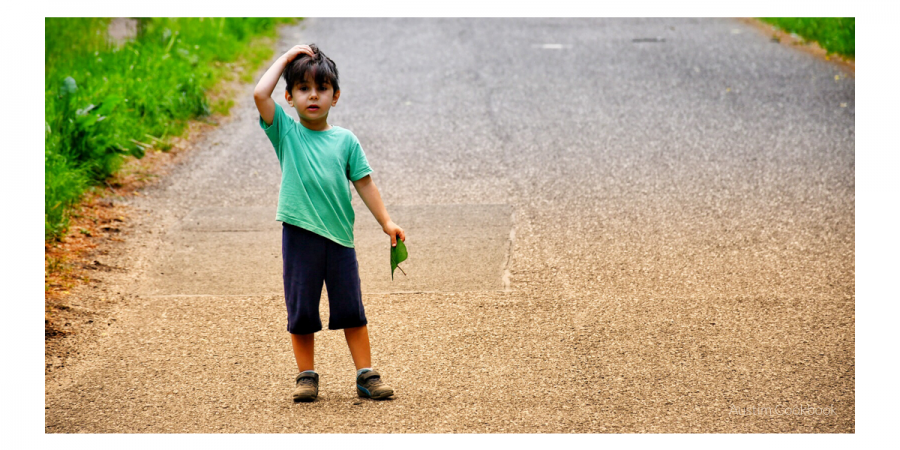Today, and it’s been already months, we are in difficult circumstances where it seems like driving the car without properly functioning brakes. Quite similar to the current situation we experience during the current COVID-19 pandemic – we are not able to stick to positive thinking and we doubtfully speculate about any single thing.
The fear of a new, unexpected, and potentially harmful situation for our health and our families, and the need for social isolation bring with them new challenges, often beyond our strength – physical and mental. This is an inevitable feeling of losing control over ordinary human existence, causing stress reactions, anxiety, and a desire to run away. Just escape.
The changes and uncertainties during this period can also affect the mental health of us adults as well as those of our children. All over the world, you hear everywhere and read about how our everyday life has changed.
Specialists in the newspapers analyze and debate, how troublesome is to deal with many social and psychological problems related to the coronavirus pandemic. Concern for their own and loved one’s health, the effects of limiting daily activities, or fear of losing health or work.
What we felt at the beginning of the pandemic was compounded by the fall’s second wave, which no one expected so quickly and on such a scale.
The impact of this situation can be especially demobilizing and disastrous for the mental well-being of many people, mainly but not only those who already suffer from specific problems.
To put it more graphically – according to a UNESCO report, due to the coronavirus pandemic in 191 countries schools were closed with a time-unspecified lockdown and still under review. Distance learning or its complete discontinuation affects over 90% of students worldwide. This should quite effectively represent the scale of disturbing routine changes and systemic changes in general for our kids.
Currently, the main emphasis is on understanding the impact of the virus on our body, and on measures to minimize its transmission as effectively as possible.
In a situation where the protection of physical health is undoubtedly appropriate, mental health is equally important. Especially when we are forced to self-isolate. We work remotely. Children learn online. We all are piled up with fears and questions.
Although a 14-day quarantine may seem insignificant to many compared to the global situation. We all have a lot to ‘digest’ due to the volatility and unpredictability of the circumstances.
Disrupting regular activities, sudden separation from a routine and imposed change of habits, and of course the fear of the virus itself and of being infected.

Of course, in a set of circumstances like those, when a critical situation comes in with a springy step, every small problem multiplies its power into disastrous intensity levels….
By this, I mean the difficulties that are deepening. For those who rely on a variety of help from the school. Or whose – families are facing health problems, or not to mention a crisis when they suddenly lose their jobs.
But here, however, I would like to mention not us, adults. We have a potentially better chance of dealing with situations of chronic stress and sudden changes that turn the regular rhythm of life upside down.
I care more about the situation of our children – not only the smallest ones, not only with atypical educational needs, those totally left to their own devices in front of a computer screen, or forgotten by the education system in the VUCA era.
Think about the kiddo who is unable to take a usual walk. Ha! He does not go outside because he cannot, or he does not go out because his mother in self-isolation cannot. Not to mention the situation where he is ‘trapped’ in the four walls of the house because the kindergartens have been closed. He has no contact with his friends. There is no confrontation with peers. He was deprived of the warmth of his grandparents, stripped of a carefree play with kids on the playground and plans for winter holidays….
But the kid is bored at home. Paradoxically, the excess of freedom (games and television) has led to boredom. The fact that children, in addition to free, individual play, do not have an organized time of interaction with their peers, with set times and rules, as is the case, for example, in kindergartens – such ‘freedom’ destabilizes.
Parents work remotely. The kid sees and feels an upset, worried father and a mother bustling around the house, who persuades herself that she will manage even if all collapses and burns …
Christmas at home. Alone. Differently.
Everything is different. Everything at a distance. Contactless. Hygienically correct.
And statistically, it looks like this:
- one child in five generates fears that they have never had before;
- every fourth child shows regressive behavior, for example, demands physical closeness with parents at night;
- half of the child’s population experiences increased irritability, intolerance to rules, tantrums and excessive demands, and every fifth mood swings and sleep problems;
- 90% of children seem capable of adapting to the constraints of the pandemic without the issues, even if one in two suffers from apathy … O MOTHER…
MOTHER!
Hug your child, even in silence. Hug. Don’t let your children experience the pandemic in abstinence, without being cuddled. It gives so much. It gives heat of love and emanates warmness. Do not be the ‘office version’ in the new kind of ‘maths lady’ during remote geometry lessons.
Be a nice touch and a tender word.
A simple hug can do a lot: we are born in a hug, and this is what comfort we seek when we feel sad, scared, or lonely.
At this historical moment in which the coronavirus robs us of human interactions like touch, hugs have metaphorical value.
Now go. And hug…
